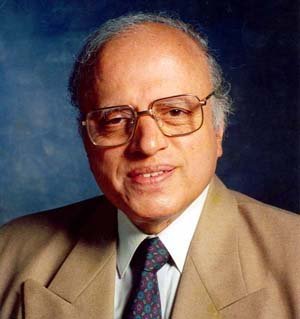
Professor MS Swaminathan, member of parliament (Rajya Sabha), India, and emeritus chairman, MS Swaminathan Research Foundation, Chennai, India
My association with biotechnology started in 1950 when I was at the University of Cambridge, where Dr Watson and Dr Crick were also working at that time. Their discovery of the double helix structure of DNA opened up uncommon opportunities in the fields of genetic recombination.
In 1981, when I was serving as chairman of the Science Advisory Committee to the Cabinet of India, I developed a proposal for establishing a National Biotechnology Board, mainly as a coordinating agency for bringing convergence and synergy among the programs initiated by the Council of Scientific and Industrial Research (CSIR), Indian Council for Agricultural Research (ICAR), Indian Council of Medical Research (ICMR), University Grants Commission (UGC), Department of Atomic Energy (DAE) and Department of Science and Technology (DST). On the suggestion of Ms Indira Gandhi, the then Prime Minister, I served as the first chairperson of the National Biotechnology Board.
One of my first initiatives was related to the use of micropropagation in the multiplication of bamboo. This work was undertaken by a team led by Professor HY Mohan Ram of the Delhi University. I also got the Delhi University involved in the study of bamboo rats. With the help of Mr KR Narayanan, who was our then ambassador to the US, I organized a meeting of the leading Indian biotechnologists settled in the US and Canada in our Embassy at Washington, US. This meeting resulted in the organization of an International Advisory Group to guide us both in relation to research priorities and human resource development.
After I left the Union Planning Commission to join as the director general of the International Rice Research Institute (IRRI), Philippines in April 1982, I organized at IRRI an international consultation on the application of biotechnology, particularly genetic engineering, in the improvement of crop yields.
This meeting resulted in the Rockefeller Foundation supporting an International Rice Biotechnology Network. This large Network funded by the Rockefeller Foundation for over 15 years resulted in very valuable genetic material possessing resistance to important pests and diseases.
I returned from IRRI early in 1988 and proceeded with the organization of the MS Swaminathan Research Foundation (MSSRF) at Chennai. One of the first projects taken up by MSSRF was anticipatory research to cope with the challenge of sea level rise. For this purpose, the mangrove species Avicinia marina was chosen as the donor of genes for salinity tolerance. Similarly Prosopis juliflora was chosen as donor for drought tolerance. This research has resulted in valuable material for salinity and drought tolerance and these have been patented.
I was invited by the Ministry of Agriculture, Government of India, to chair a Committee on Agricultural Biotechnology in 2003. In the report that I submitted on behalf of the committee early in 2004, I suggested that we should develop a parliament-approved regulatory system which inspires public, political, professional and media confidence. Had the government acted on this advice, the kind of problems we are facing now would not have arisen.
A transparent and professional regulatory system would help to measure risks and benefits associated with each genetically modified organism (GMO) in a credible manner.
Thus, my contacts and experience in the field of biotechnology during the last 60 years have helped in both initiating programs, which can help us to strengthen our food and environmental security and at the same time understand public and the NGO concerns in relation to genetically modified food crops. I have little doubt that these fears can be allayed with the help of an autonomous and professional regulatory system.




